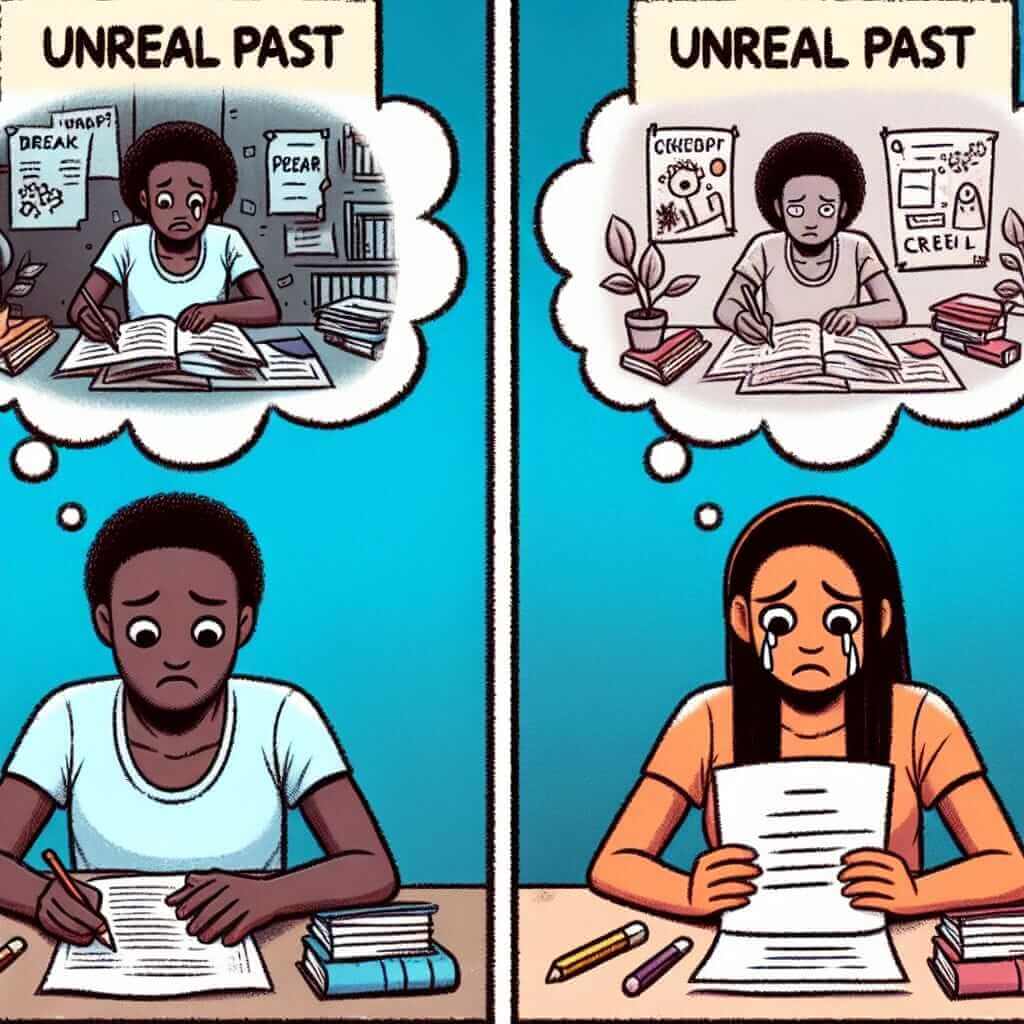“If only I could travel more often!” This common expression of longing reveals a grammatical structure that often trips up IELTS candidates: the unreal past. While seemingly straightforward, mastering this form is crucial for expressing hypothetical situations and their consequences, a skill frequently tested in the IELTS Speaking and Writing sections.
Here are some examples of how unreal past constructions might appear in the IELTS exam:
- Speaking Part 2: Describe a time you had to overcome a challenge. “If only I had listened to my friend’s advice, I would have avoided that mistake.”
- Writing Task 2: Some people believe that technology makes us less creative. Do you agree or disagree? “Were it not for the internet, accessing information would be far more difficult.”
Let’s delve deeper into the mechanics of this versatile grammatical tool and explore how you can wield it effectively to boost your IELTS score.
Understanding the Unreal Past
The “unreal past” doesn’t refer to actual past events; instead, it creates hypothetical scenarios – things that are not true or did not happen. “If only I could travel more often” expresses a wish for a different reality. The speaker cannot travel more often, but the sentence explores the possibility.
This grammatical structure is commonly found in:
- Expressing Regret: “If only I had studied harder for the exam!”
- Hypothetical Situations: “If I were a millionaire, I would buy a yacht.”
- Making Polite Requests: “Would it be possible for me to borrow your pen?”
Mastering the “If Only” Construction
This structure specifically expresses unfulfilled wishes or regrets. Let’s break down its formula:
If only + Subject + Past Simple (for present/future wishes) / Past Perfect (for past wishes)

Usage in Different IELTS Sections:
-
Speaking: It allows you to express personal opinions and experiences vividly. For instance, in Part 2 when describing a memorable event, you could say, “If only I had known it was their birthday, I would have brought a gift.”
-
Writing Task 2: You can use it to discuss hypothetical situations and their consequences. “If only governments invested more in renewable energy, we could combat climate change more effectively.”
Examples and Analysis:
-
“If only I had booked that flight earlier, I would be lying on a beach right now.”
- This expresses a regret about a past event. The speaker didn’t book the flight earlier, and now they are not on the beach.
-
“If only I spoke another language fluently, I could work abroad.”
- This highlights a present wish. The speaker doesn’t speak another language, limiting their job opportunities.
Using Other Unreal Past Structures for a Higher Score
While “If only” is a powerful tool, diversifying your grammatical structures demonstrates greater mastery of the English language. Consider these alternatives:
1. The Second Conditional:
(If + Past Simple, would + base verb)
- Example: “If I won the lottery, I would travel the world.”
2. “Were” in Place of “If”:
(Were + Subject + to + verb…, Subject + would + base verb)
- Example: “Were I to have more free time, I would learn to play the piano.”
3. Inversion with “Had”:
(Had + Subject + Past Participle…, Subject + would have + past participle)
- Example: “Had I known about the traffic, I would have left earlier.”
These structures, while expressing similar meanings, add variety and sophistication to your language, potentially boosting your score.
Common Mistakes to Avoid
-
Incorrect Tense Agreement: Ensure the tenses align within the sentence. For instance, “If only I had studied harder, I would pass the exam” is incorrect. It should be “If only I had studied harder, I would have passed the exam.”
-
Overusing “If Only”: While useful, repetitive use makes your language sound unnatural. Employ a variety of grammatical structures to express unreal situations.
Conclusion
Mastering the unreal past is not just about memorizing structures; it’s about understanding how to express nuances of meaning related to hypothetical situations. By incorporating “If only” and its variations accurately and strategically in your IELTS Speaking and Writing, you can effectively convey regret, explore possibilities, and ultimately, enhance your overall score. Remember to practice consistently, paying attention to both form and meaning, and soon you’ll be navigating these complex grammatical structures with confidence.